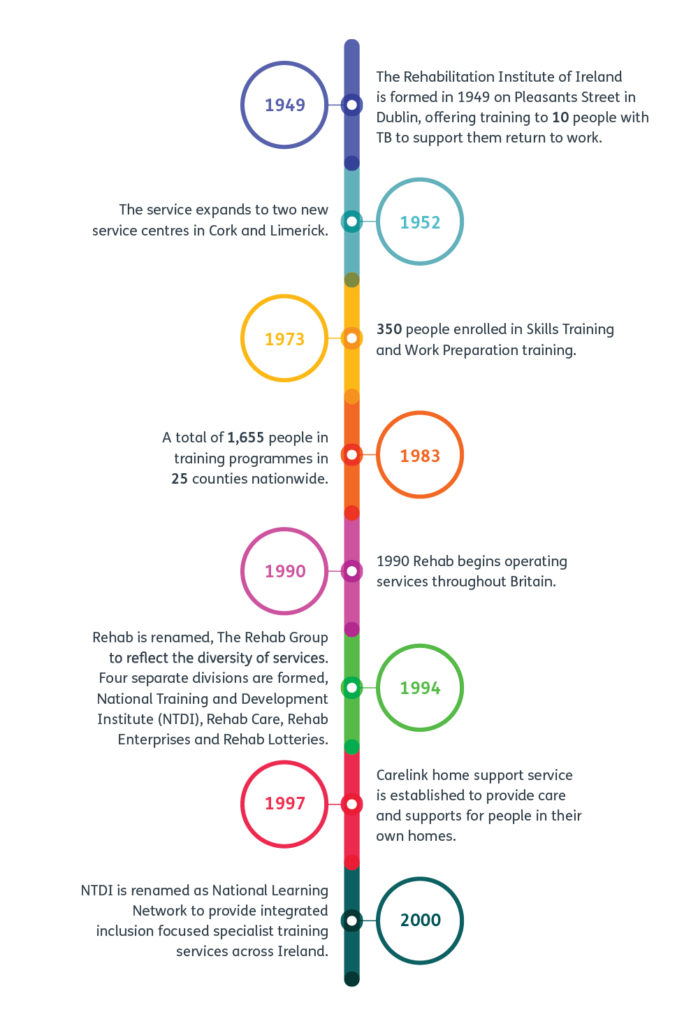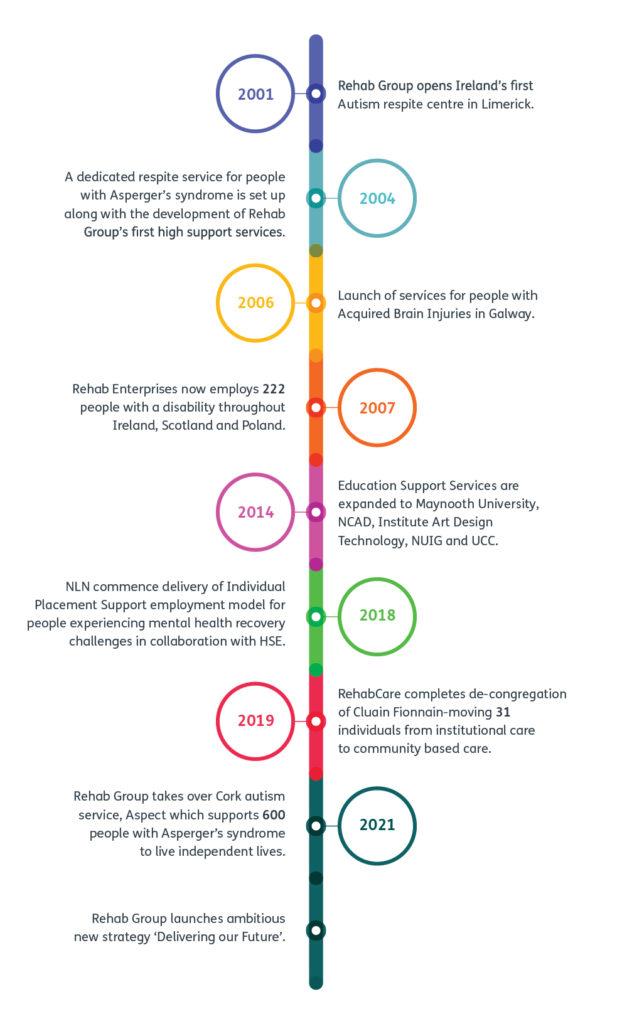Our History
Rehab began as the Rehabilitation Institute in 1949 to support people recovering from TB to rebuild their lives, regain their independence, and re-enter the workforce following their illness.
In the early years, Rehab focused on providing training services to support people entering or re-entering the workforce.
Throughout its history, Rehab has developed considerable skills and resources in meeting the needs of people who need specific support to live the lives that they want to live.
Rehab has since expanded its focus to include all people with disabilities and others who are marginalised. As a result, over the years, hundreds of thousands of people and their families have benefited from the services provided by Rehab Group.
From humble beginnings in a one-room centre on Pleasant’s Street, Dublin, providing a service to ten people, the service expanded to two additional centres in Cork and Limerick in 1952. As a result, Rehab now provides services in more than 170 locations throughout Ireland, Scotland and Poland.
Rehab has transformed into one of Europe’s most dynamic disability organisations. World-class facilities have been established throughout Ireland and Scotland, along with programmes that set the standard across Europe.

Moving forward
The Rehab Group has diversified considerably, developing sustainable, commercial organisations where people with disabilities and people without disabilities work side by side. Today these organisations operate in several areas, including recycling, packaging, logistics and retail services.
In 1995, the organisation moved into new areas of service provision, providing people with disabilities and older people health and social care services such as day, home-based, respite, residential and outreach services.
In Ireland, services are provided by the training and employment division, National Learning Network, the health and social care division, RehabCare and Social Enterprises division.
Shaping policy
Since its inception, Rehab has been at the forefront of the campaign to give disability its rightful place on the national agenda.
As early as the 1950s, Rehab sought to influence government policy to improve the quality of life for people with disabilities significantly. For example, it has lobbied for the introduction of realistic State payments to those whose disability prevents them from working, along with measures to increase access for people with disabilities to public transport and public buildings.
Today, there is a growing recognition that a broad coalition of all stakeholders in the disability sector is best placed to effect real change and that, working together, we can achieve so much more. Through such a stakeholder approach, Rehab has played an instrumental role in the development and implementation of the National Disability Strategy, which for the first time, places disability firmly on the agenda of key government departments.
Over the last 60 years, a considerable amount has been achieved by Rehab for people with disabilities. Rehab plans to build on this and play a crucial part in shaping a better future for people with disabilities and others who are marginalised for many years to come.

